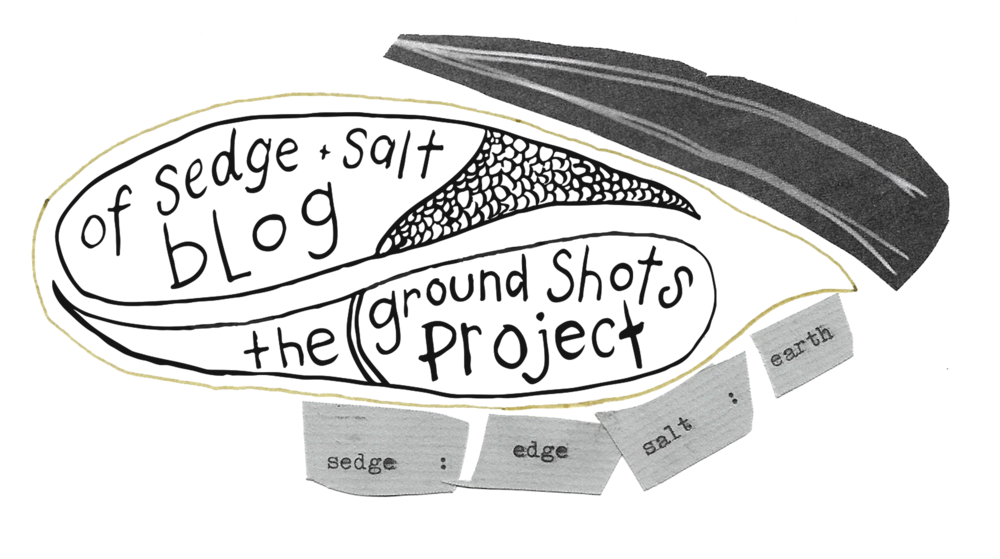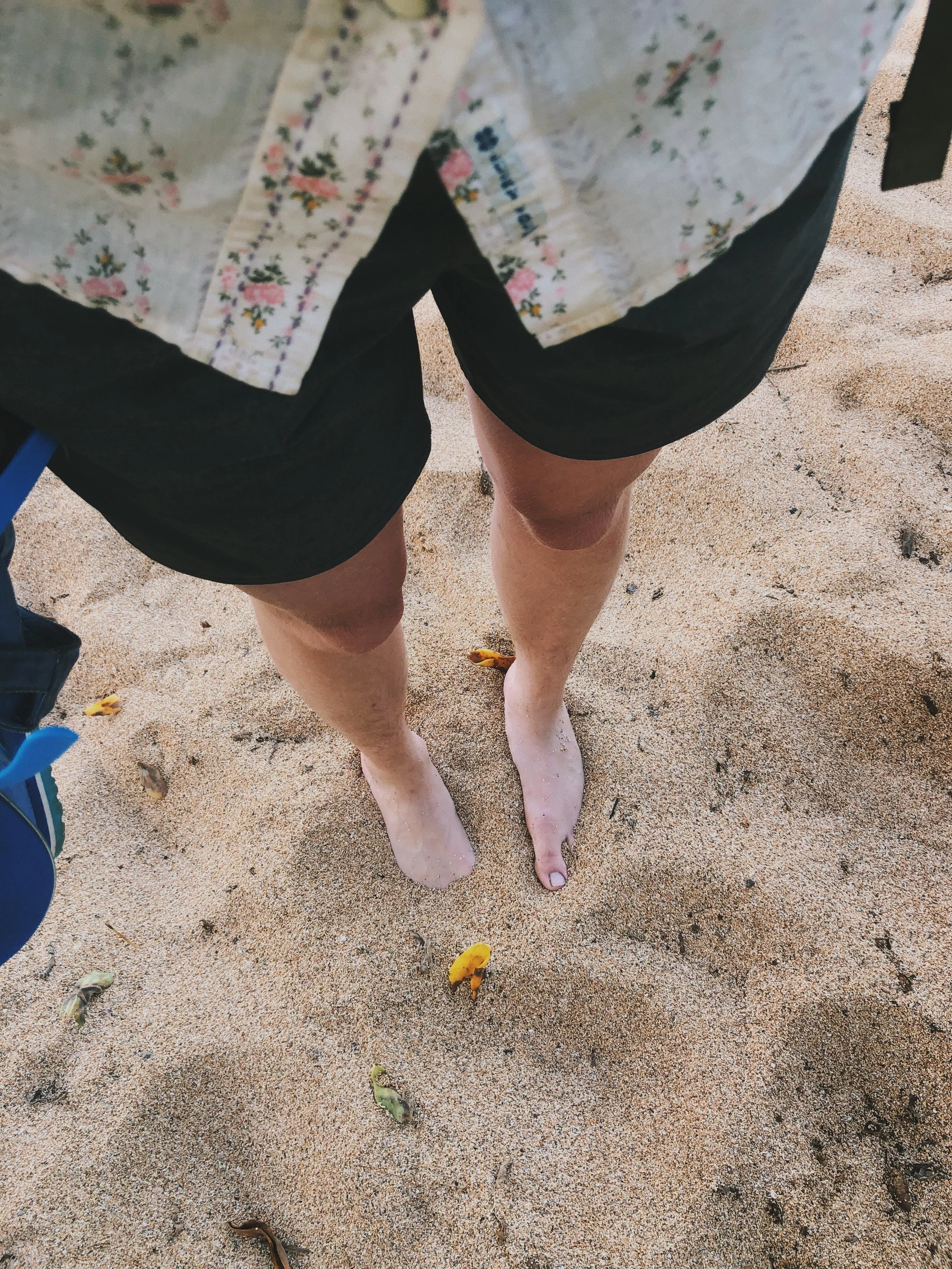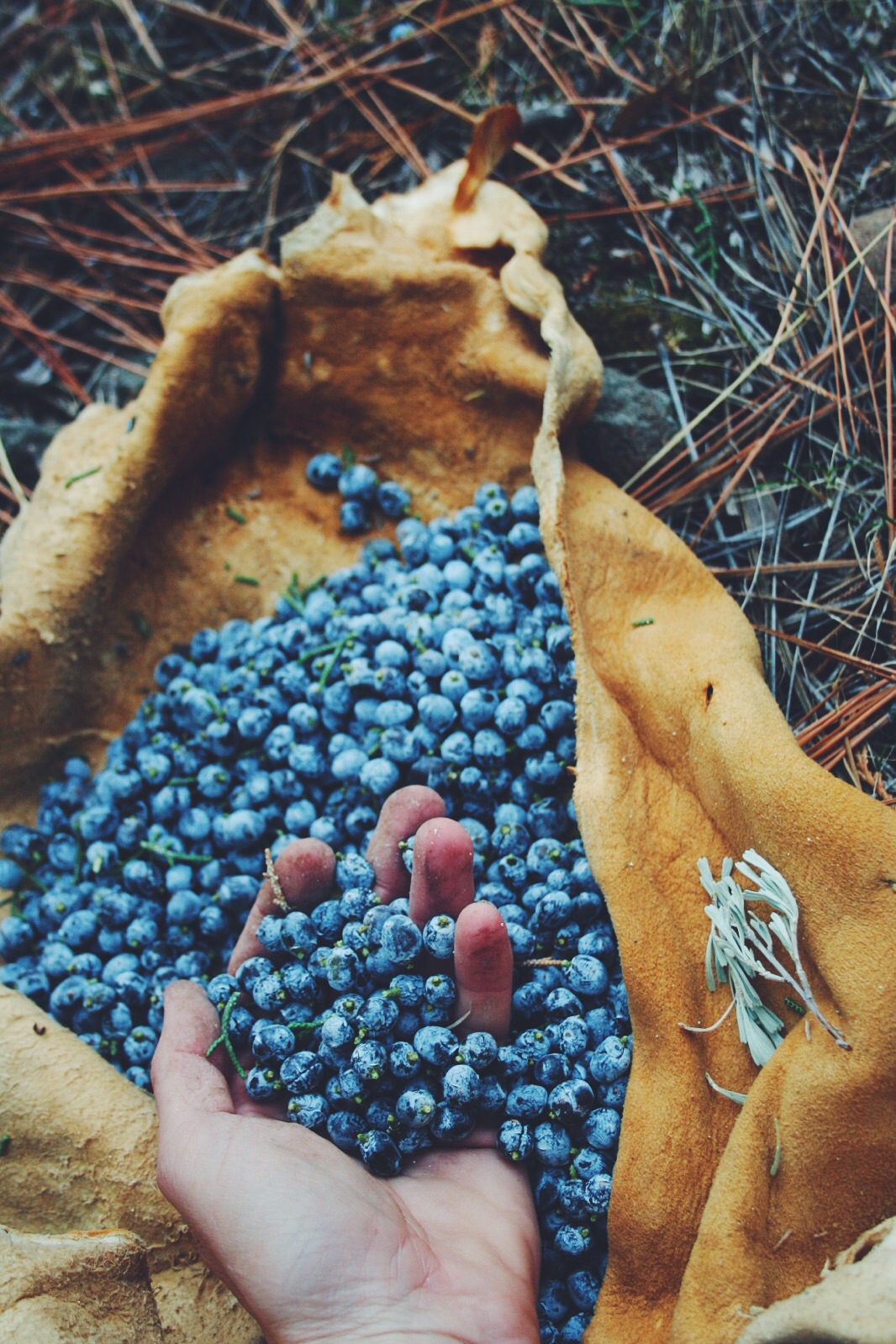Actually, this is a persimmon tree, full of tannic skinned fruits, not the giant white oak I speak of. This tree hugs a fence line surrounded by cow fields.
What does the oil do? How long does it take for the sun to break down bone?
I arrive with a flash of white that it paints the landscape around me, so big and lambent, endless. The land is hot, cyan. The contrast creme luminescence soaks into my small body, I am the thick humid place. Space is chiseled outlines and defined by the extremes. The chalky fence line is painted a million times over, peeling from the sun. The house a towering monolith on the barren scorched landscape. This monolith with eyes makes a shadow, and next to it with a smaller shadow is the big rough shape shooting out of the flat plane [an oak tree]. All is quick, nonlinear and ping pong. Yet, time is slow like molasses, or flashing frames of stillness like pine sap on a winter’s day. I hear no sounds. I am in a container that moves across crisped land [a car]. Then, I'm out. I am hovering through the bright blinding immensity. I move towards a black shape hovering on a porch. Slightly humped over, a long straight skirt defines the body and big hanging curved arms protrude out. Confetti flying in circles emerge inside my inner landscape. I am the land, but I am also another [love]. I am all of the brightness and shadows. I fear even though I know [it’s okay]. This figure is she. She loves me. She was waiting in the hot cyan thick for us. I know she loves me even though I don’t understand I am separate. I don’t know what love really is. It hasn’t been analyzed or broken. There is only feeling. My body is the land, and the land is treacherous. It feels, expands, unfolds exponentially into all that I see. Singularity is the beating heart, embodying love.
Sweet potato curing shed.
A page from my art book "Oil & Rust" printed at Penland School of Crafts, Spring 2016. This book explores new southern gothic themes.
Suddenly, black. Noir, [dark] the shadow has swallowed us and the painted white land is no longer. The monolith with the big eyes has eaten us and now only small portals show us the big bright everything. The monolith is a womb. The air is thinner, cooler, smaller, faster. I do not know where I am, but did I know before? [love]. What do I know? Where is she? The land is gone. My body is gone. I am suddenly alone. She who brought me and she who was waiting are too far to be felt. I lay in the darkness, in the womb staring up into the empty space [the ceiling with the metal vent that lets you hear upstairs] Perception is obscure and I drift into nothingness [safe and sleeping].
Noir. Inside the sweet potato curing shed.
Cutout of a person, possibly from a tobacco advertisement, but holding an iron? Many of these cutouts decorate the inside of the tobacco barns.
Rust: the earth taking the icons back. The symbol of time sifting through ideas.
Front Door.
This is the first memory of arriving at my grandparent's house in Union Level, VA as a baby. My mother went back to work full time shortly after having me and I stayed at my grandmother’s house almost daily. I was brought in the wee morning hours and picked up as my mother got off work. I spent countless days and hours on the farm, in the space of the womb house. The blinds would all be shut when it was summertime because the temperatures got into the hundreds in the daytime. It would stay surprisingly cool with one AC unit in the main dining room. People didn’t seem to hide their houses in forests so much where I grew up, they plopped the white houses down on an open plain surrounded by fields and maybe planted a couple oaks, hickories, or a pecan in the yard for shade.
A sort of tiller, to be horse drawn, with black-smithed railroad spike components. Leaning against an old chicken coop that belonged to the black tenant farmers.
Old Virginia Creeper vines cut and dead and petrifying with lichens that thrive in the sun.
One of the tobacco curing barns. My memory of tobacco sorting happened here.
My papa worked in the tobacco fields. I remember going with my grandmother over to the curing shed and seeing the rusty leaves moving on conveyer belts and people with a darker shade of skin standing on the other side of the conveyer belt moving the leaves around or collecting them, I am not sure. Papa would come in for lunch that my grandma prepared. Grandma [Grum-ma] would make biscuits at 10 or 11, while we watched The Price is Right on a wooden TV. We would drink Pepsi Floats before lunch with plastic straws that had plastic lips attached to the straw. Lunch would be butter beans, biscuits with ham and sweet tea made from Lipton bags and white sugar. When I was little I sat in a clear lacquered wooden high chair passed down through the children at the corner of the kitchen table. From this place, I could see out the windows that were just above the fence, with a view of the cow fields.
In the early days, my Great-Grandma would sit in the rocking chair in the big dark room of my first memories in the exact place I remember being laid in a crib in the darkness. Whether or not it was the exact spot, I do not know. She would sit there all day and watch TV, and rock. She would not hold me much. She was small and frail. She would talk to me sometimes, but she had a quiet disassociated demenor. I found out later that she was jealous of the attention my Grandma gave me. My over 100 year old Great-Grandma was bossy to my Grandma, who out of many children capable, became the caretaker. [I had three great-grandmas that lived to be over a hundred, it must be the salty pork] My great grandma had her own bedroom off the big black room to the side. It was usually off limits to me until later after she died. The room is still as if she was there yesterday, a wooden vanity with a big mirror. My grandmother [Grum-ma] had a rocking chair on the other side of the room, separated by a couch with a low coffee table in front of it. My grandmother was bigger, a soft cushion. I would sit on her big legs, her always skirted lap, and sometimes fall asleep there. As an adult, I missed that lap, I was no longer allowed to sit there on that cushion. When she was dying of cancer, I was about to go off to Spain to find myself on a pilgrimage and ultimately never see her again. At this moment, I so badly wanted to sit on that soft lap again and cry in her neck [safe]. My grandma made her own dresses, long and floral with light fabric, usually just below the knee. She wore thin tights underneath to cover her varicose veins and contain her tired legs. She tried pants. She didn't like them. Her dresses were usually sleeveless in my memories, as the days were so hot and muggy in the summertime that the arms needed to be free. She had thick moist arms that were strong and able. She couldn’t crochet or make lace anymore because of the stiff knobs that her fingers became. She always wore red lipstick and kept her hair perfect in short curls.
We drank that really sweet iced tea stored warm in a plastic pitcher on the countertop. It was always poured over a small square glass with ice filled to the brim. Ice always made in vintage sea foam green trays. Grandma always had Pepsi and Dr. Pepper on the counter, also kept unrefrigerated. Poured the same way.
She never spanked me or yelled at me, except once when I climbed on the kitchen counter while she hung laundry on the line. Then she cried after. We played. We had fun. I would take her cylindrical spool of crochet yarn and weave impenetrable fortresses in the dining room, wrapping it around chair legs and tables and the record player so I could crawl around in the layers. She would always clean up the tangled yarn after I was done, and it was time to go. My papa would come in and laugh at my crazy forts. I did a lot of art at my grandmas and she would just let me make a big mess.
We would visit the cows, standing next to the fence. I was told to be afraid of them and especially the bull, the only male in the bunch. They had a claw foot bath tub as a feeding trough that still sits in the same place as I remember, like most things on the farm. We would walk to the dilapidated and sun-bleached telephone booth, still on the property now, and stand inside to pretend we were making a call. It sat at the corner where two fences meet, and a special entrance path that only humans can get through to go from one side to another [no cows].
The Corner.
We would go pick sour cherries off the cherry tree. The tree is still there, barely. The apple tree and the cherry tree still standing have been hit by lightening several times. They sit on either side of a sweet potato curing shed, inside resting parks of a stove pipe and wooden crates for holding them [sweet taters]. Sweet potatoes, as I learned as an adult after asking my Papa, was a mainstay for families in the area, and is still a local favorite. They would grow enough for the whole year and it was my Papa’s job and a child to make fires in the curing and storage house so that they didn’t freeze, because that would ruin them. They would also raise enough pigs for a years worth of pork.
Mabel Jane, a great aunt, who is a wonderful storyteller, picks cherries from the old family trees.
There aren’t many trees around the big white house. The land is open and exposed. The sun comes in at all angles. Sometimes Papa would take me up to the Warren store down the road towards town a few miles, a stark cinderblock building painted white matching the sunstroke landscape in summer. It is still a convenience store. There were always a few older white men hanging out in the store. I felt like most of the goods in there were covered in dust and were crammed together in tiny disorganized isles. We would buy a soda and Ninja Turtle gummi bears wrapped in clear plastic. My Papa is still alive. He still eats saltine crackers with Peter Pan peanut butter and vinegar. He makes the tea now, except he stores it in the fridge. Now, he mixes cranberry juice and lemon with his tea. He finally stopped hanging the laundry and got a dryer a few years back because its hard for him to do things like that now.
The house to the right was lived in by black tenant farmers. To the left is the old chicken coop. I am assuming that tiller is made of cedar because it seems like it could still be used today.
Taylor and Cooper in the strawberry patch.
My papa had a tan colored dog, always kept on a long chain by the small barn with the big old car melting into the ground. We could go pet it sometimes. It had worn the ground down to dust where it ran to the extent the chain would allow. My papa accidentally killed the dog. The chain was crossed under the fence on the other side and he was mowing over there and ran over the chain, jerking the dog to the fence and breaking its neck. He didn’t tell anyone for days until my grandma noticed the dog gone. He was quiet about death. He didn’t like killing things. He never hunted. He was in a prison camp in the war. He barely survived. He has a silent reverence for life. He didn’t complain about pain. He has only just started with his knees, describing the feeling as ‘clunk-clock’ when the two bones knock together while walking.
Fruits of tradition, cycles, celebrations.
My grandma made pies and casseroles. She always cooked an enormous amount of food for the holidays. Green bean casserole, turkey and gravy, dry salted ham, corn pudding, sweet potato pie, pecan pie, coconut creme pie, stuffing, deviled eggs, shrimp cocktail. She canned vegetables from the garden. Pear butter, strawberry preserves, canned green beans, sweet pickled cucumbers that are still my favorite [mom makes them too], tomato sauce.
We ate lots of strawberry shortcake, as my Grandma and Papa had an enormous strawberry patch. We would wash them, drain them, cap them and freeze them in plastic circular containers. The frozen strawberries were syrupy and sweet, maybe because she added sugar. We would pour the strawberries onto short bread that had a cup inside of it, and then add whipped cream on top. No wonder I have a sweet tooth.
My first cousin Taylor's bright hands last Spring picking from the same strawberry patch we've always picked from.
Probably some kind of implement for mules used instead of tractors in the fields. The building is an old kitchen, once attached to the main house, and was taken off and used as a shed after renovations. It still has cabinets, cast irons and linoleum floors.
Anvil on the farm. Still can't figure out who exactly was the blacksmith. There are tons of tools and implements that look hand made or hand altered.
All things end, I suppose. As the only constant is change. Nowadays, the farms in the neighborhood and the area are threatened. Not by development or mining, but by abandonment. There is less passion for living off of the land there amongst the younger generation. The southern gothic farmhouses, white and grandiose, but modestly built at the same time, are either being caretaken by last remaining elder family members or have been left to be taken by nature. The barns once filled with curing tobacco and whole families working together to hang the leaves are now falling to the ground.
tobacco fields.
The chemicals used on the plants starting in the 1950’s and onward were first dispersed by the children of farmers, who had to help out as soon as they were able. They poured a syrup of poison on the crowns of the tobacco to keep them from suckering, or sprayed them to get rid of the hornworms. They got lung infections and coughs. The children who were subject to handling the poisons then are now getting cancer and disease. The hospital doesn’t announce that connection but everyone knows its the truth. My great aunts Mabel Jane and Elaine tell me stories of their handling of the poisons.
My Papa is getting to a place where he can’t drive well and has episodes of incoherence, where I’ve always known him to be mentally sharp and with it. He can remember every date and detail about his ordeal in the war, or who lived where and did what at any era through his years. Once he goes, an era ends. An era of many things: of family togetherness, of gathering around food and work, of closeness with neighbors and baking pies for others. It will also be the end of darker things that are represented in the agricultural relationship with the land.
Pokeweed takes on the fence.
The cyan will sweep the land clean. It will pass along the era of frolicking children in dusty linen dresses and black tenant farmers toiling away. The flash of hot will bury the monoliths, the homes and the linear rows, just as fast as they were born in my first memories, all undefined and held with cryptic code. The joy of homemade pie, sweet iced tea and being held by a grandma fade into the ocean of the past, but is not to be mourned or forgotten. The future holds new waves, new growth, and more pies to be made in the name of the bygone.
Here, or there.














































































